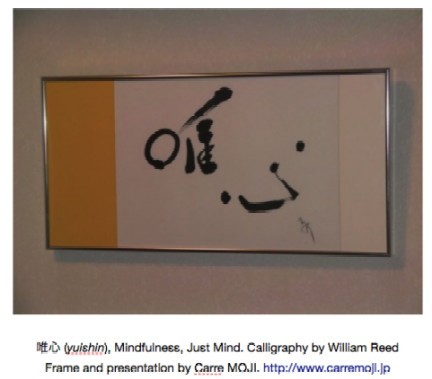Work in Japan Advice Board


- Jobs in Japan @ Daijob.com
- The Magic of Mindfulness
Creative Career Path
The Magic of Mindfulness2009.08.19
 Is your work mentally and physically engaging, or does it sap your energy? If you fail to engage with your work, you may find yourself spending too much time working in a mindless state, absent-minded activity without awareness or appreciation. The problem with mindlessness is that it is habit forming.
Is your work mentally and physically engaging, or does it sap your energy? If you fail to engage with your work, you may find yourself spending too much time working in a mindless state, absent-minded activity without awareness or appreciation. The problem with mindlessness is that it is habit forming.
Harvard University Psychologist Ellen J. Langer, author of numerous books and articles on Mindfulness, says that the costs of mindlessness range from the trivial to the catastrophic. A poor self-image, casual cruelty, learned helplessness, stunted potential.
Dr. Langer says that mindlessness stems from three habits of mind. The first habit is looking at things and people in terms of categories, stereotyping our world rather than experiencing it. The second habit acting from a single perspective, acting without thinking. The third habit is repetitive tasks or habits, doing things on auto-pilot.
Sound familiar? If you examine your work from this perspective, you may learn a lot about yourself as well as the people you work with.
Mindlessness is not something that started in modern times. As Michael J. Gelb points out in DaVinci Decoded, Leonardo da Vinci lamented, “The average person looks without seeing, listens without hearing, touches without feeling, eats without tasting, moves without physical awareness, inhales without awareness of odor or fragrance, and talks without thinking.” And that was 500 years ago in Tuscany!
Interestingly, Dr. Langer reported in the journal Psychology of Music, that when orchestra members were encouraged to create novel distinctions and play subtle nuances, they enjoyed their performances more, and recordings of those performances were significantly preferred by audiences to recordings when musicians attempted to recreate a past performance.
Think about the consequences of people being mindless at work. How safe is the driver whose mind is on something else? How does food taste when the chef is upset about something? What kind of products are produced by people who could care less? What is it like to work in a place where politics precludes fairness?
More important is how can we be mindful, not only at work but in daily life?Harvard Health says that mindfulness improves the quality of life. The University of Massachusetts has been following this subject for 30 years, starting in 1979 with the UMass Medical School Stress Reduction Clinic. This evolved into the Center for Mindfulness in Medicine, Health Care, and Society, established in 1995 by Jon Kabat-Zinn, PhD, who has trained judges, CEOs, business leaders, and Olympic athletes. He has also been active in organizing dialogs between the Dalai Lama and Western scientists and scholars, to probe the benefits of mindfulness and meditation.
The concept of mindfulness is expressed by the word 唯心 (yuishin), meaning only mind or just mind. Mindfulness has many proponents, but essentially it is a method for living with heightened awareness and greater engagement. Though it can be practiced in daily life, in order to overcome the habit of mindlessness it helps to engage in a discipline such as meditation or martial arts, or a creative pursuit in art or music.
Mindfulness is also a habit, and awareness improves with practice. If you engage with your work both mentally and physically, it will give you energy and transform the quality of your work. Strive to develop the concentration of the craftsman, the discernment of the artist. If you don’t do this, no one else will do it for you.
William Reed
Article Writer
William Reed is a renowned author-speaker who coaches physical finesse and flexible focus for a creative career path. A certified Master Trainer in Guerrilla Marketing and 7th-dan in Aikido, he combines practical wisdom of East and West to help you learn personal branding at the Entrepreneurs Creative Edge.
Similar Articles
- 2015.08.04A Comparison between Western and Asian D...
- 2015.07.28Being an Effective Communicator
- 2015.07.21Making Your Presentation Interactive




